Bloating is one of the most common types of digestive issues, often causing discomfort in the stomach and intestines. Your diet has the greatest impact on how you feel and in some situations, an undiagnosed disease could be the main culprit of your bloating symptoms.
1. Irritable Bowel Syndrome (IBS)
Irritable bowel syndrome is one of the most common gastrointestinal conditions among adults in the United States of America. Although the root causes of this chronic disease are not yet fully understood, there are a few culprits that should be mentioned. This GI problem usually leads to bloating, constipation, diarrhea and other irregularities in bowel movements. Bacterial infections and stress are some of the leading causes of this disorder. If you experience frequent bloating in your stomach or intestines for at least several months, you might suffer from an early stage of IBS. Since the symptoms of the condition typically overlap, you will need an accurate diagnosis from a primary care physician or gastrointestinal expert. Based on your medical history, age, height, weight and other physical parameters, the doctor will attempt to diagnose the presence or severity of IBS. However, stool studies should be done to confirm any irregularities that could link your symptoms with the chronic disorder. A colonoscopy and an upper endoscopy could be performed to verify a moderate or severe form of IBS.
2. Lactose Intolerance
If you consume a significant amount of dairy products on a regular basis and you frequently feel bloated, you might have lactose intolerance. From a nutritional perspective, lactose is one of the most important components of milk and other dairy products. This is a simple sugar with a distinctive molecular formula that includes a fixed configuration of carbon, hydrogen and oxygen. If you suffer from bloating immediately after consuming milk, yogurt, cream cheese and an array of other dairy items, you probably can't break down and digest lactose. From the point of view of a gastrointestinal specialist, your body lacks a special enzyme that's called lactase. Therefore, the undigested lactose leads to the production of gas and other byproducts inside your digestive tract. Depending on the amount of dairy consumed, you will feel a corresponding level of discomfort, abdominal pain, bloating and other relevant problems in your stomach and intestines. A hydrogen breath test is commonly used to identify lactose intolerance. As the name suggests, this test checks the levels of hydrogen in your breath. As expected, lactose intolerance quickly elevates the concentration of hydrogen inside your mouth.
3. Ingesting Too Much Air
You might feel bloated after eating or drinking too fast. When too many air particles enter your esophagus, they will ultimately be trapped inside the stomach. The air pockets will be blocked by other incoming food particles and liquids. Bloating could also be exacerbated by rapid talking, intense shouting, singing and other activities that induce an extra flow of air into the digestive tract. When you drink beverages through a straw, you should focus on the suction in a controlled manner. Distractions while drinking could easily lead to excessive air going into your esophagus and stomach. For example, some people tend to drink lots of beverages through a straw when watching sports games and other entertainment events. The diameter of the straw could also impact the rate at which air gets into the wrong inlet inside your mouth.
4. Eating Too Much Fiber
Packed with a high content of natural fiber, some vegetables and legumes will make you feel bloated. When you consume fiber in adequate amounts that are aligned with daily intake recommendations, you will enjoy regular bowel movements and other health benefits. However, most beans will cause a certain level of expected bloating. Loaded with complex carbohydrates, beans require a relatively extended time for proper digestion. Your unique GI tract might struggle to properly break down the carbs in these natural sources of fiber. If you eat too many beans at a rapid pace, gas will naturally form inside the intestines. Of course, most beans and legumes also increase flatulence.
5. Dehydration
Your GI tract requires a certain amount of water for proper operations. If you don't drink enough water on a regular basis, you will feel bloated. Dehydration causes the body to retain any available water inside the digestive system, bloodstream and other systems. Therefore, the excessive water in the stomach or intestines will cause temporary bloating. Alcoholic beverages typically increase the risk of dehydration. Exercising in the sun for an extended period could also dehydrate your entire body. Even if you drink sufficient volumes of water, you might still suffer from an imbalance in the level of electrolytes in your body. In general, important salts control the retention and movement of water or other fluids in the digestive tract. Calcium, magnesium and potassium are some of the most critical salts in the human body. Some sports drinks and energy drinks are loaded with these essential electrolytes.
6. Drinking Too Much Soda
Carbonated beverages are notorious for making you feel bloated. You might enjoy the fizz in the drinks, but you certainly won't appreciate the bloating. Even diet soda is packed with a relatively high amount of gaseous particles, which could wreak havoc on your stomach. Artificial sweeteners and other synthetic additives may further upset your digestive system. The trapped gas inside the stomach is typically relieved through belching and burping. However, other incoming food particles could prevent the gas from escaping.



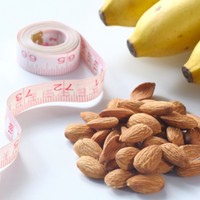
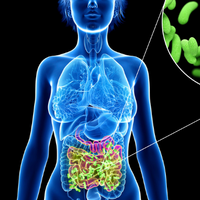
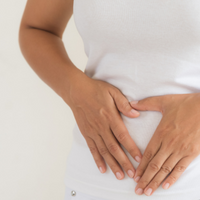
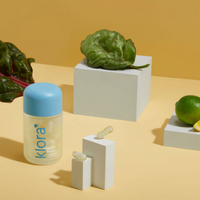
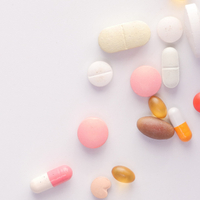
0 comments